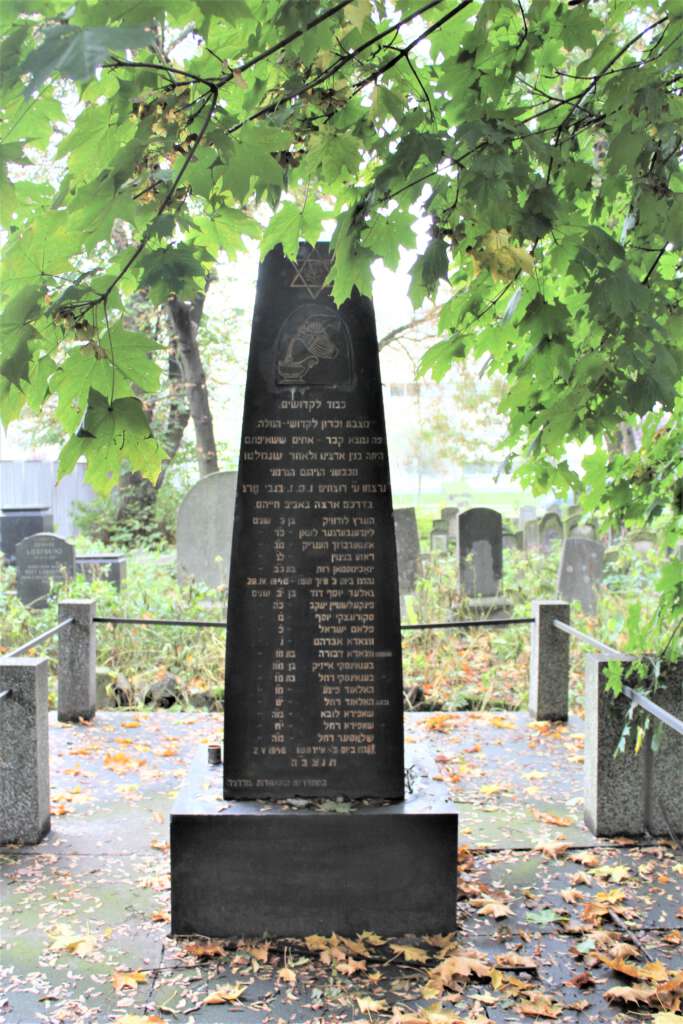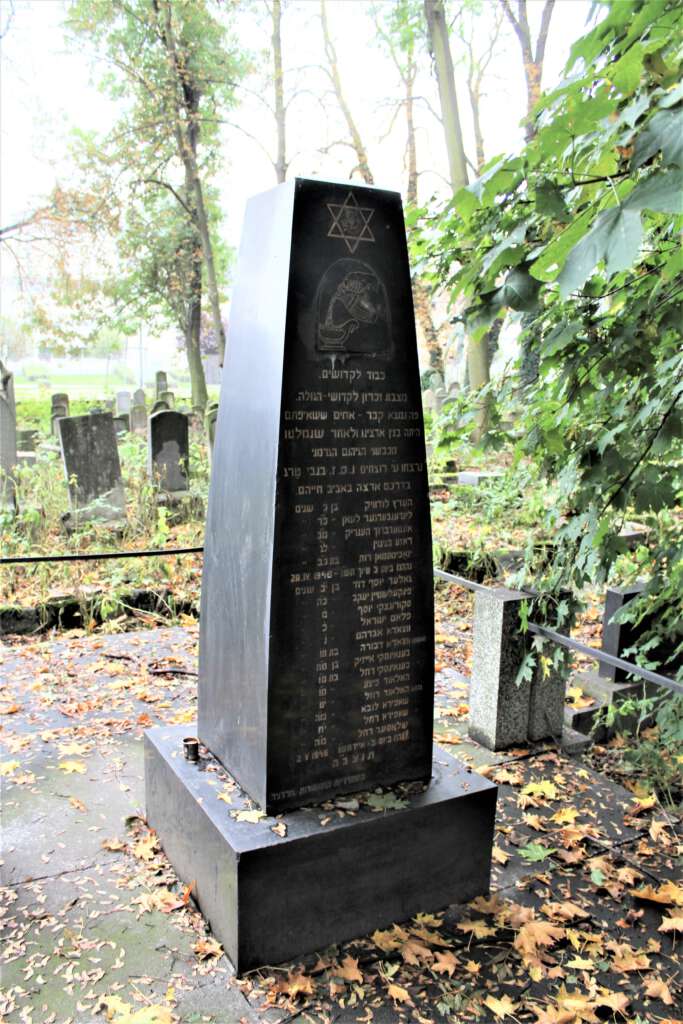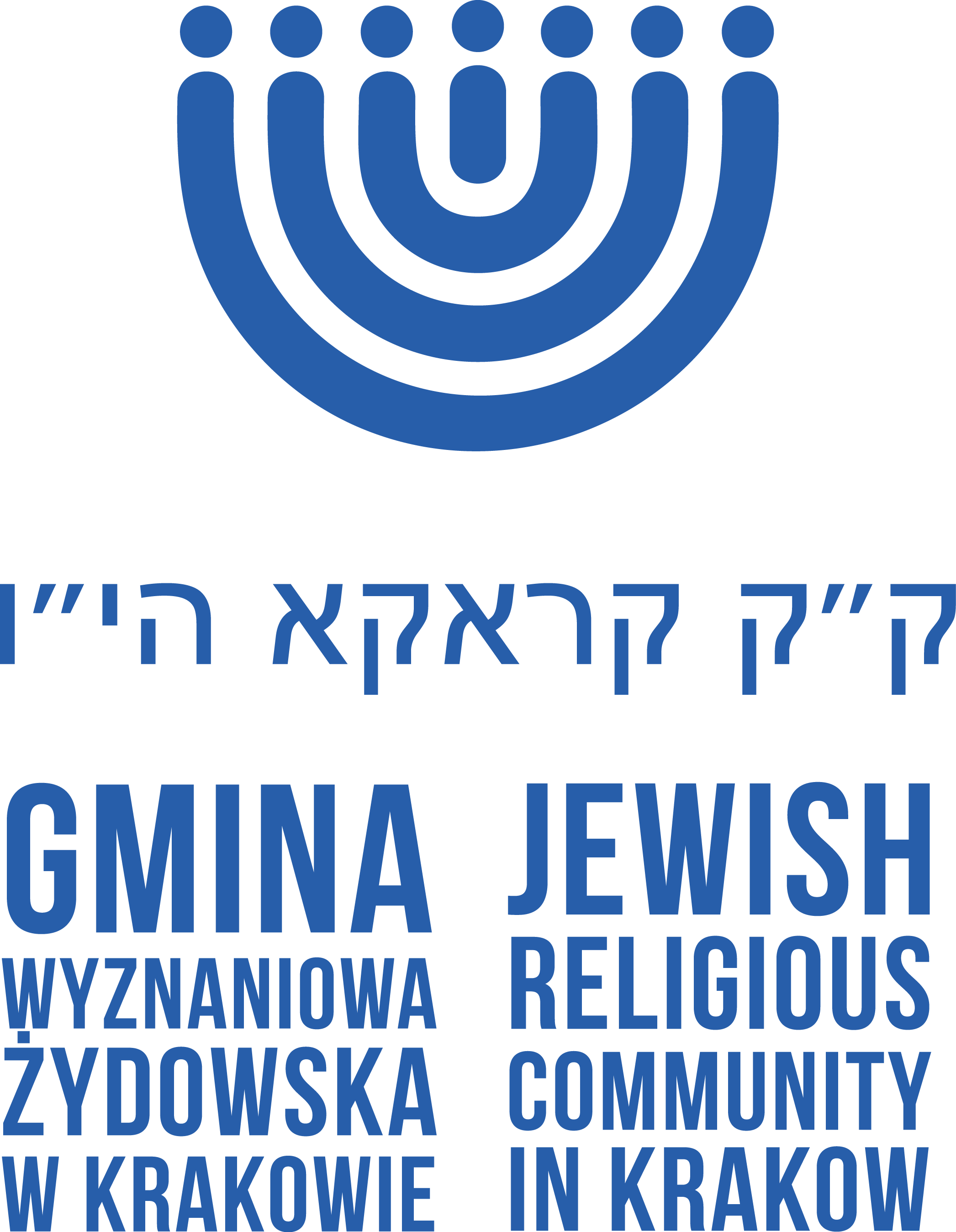BS”D
20 Iyar 5781
On 2 May 1946 near Krościenko a group of bandits likes to the Partisan Group “Lightning”, led by Józef Kuraś, nom de guerre “Ogień” (Fire)fired against Jewish civilians crossing the border, killing more than 10 of them.
“A common element in the leaflets distributed in Podhale by ‘Fire’ was the identification of the Jewish nationality with the communist regime” – we read in the brochure published by the Kraków department of the Institute for National Memory in 2017 under the title “Józef Kuraś ‘Ogien’ and the Partisan Group ‘Błyskawica’ “. “Even when one can see the reasons which led to the execution of Security Department agents and of Party Functionaries, one cannot justify acts of ciolence against common people who were not engaged in political activities.
“During the negotiations with the Security Department in 1946 Kuraś suggested deporting Jews from Podhale – as in those days Germans, Belarusians and Ukrainians had been deported. Former soldiers of “Ognia” deny anti-Semitism and involvement in the physical liquidation of the Jewish people. However, it is from the hand of his people that a group of people were killed near Nowy Targ on 20 April 1946 and that near Krościenko a group of partisans fired against Jewish civilians fleeing abroad, killing many of them. Although Ogień was absent in the last murder, as leader of the group he is responsible for the acts of his subordinates.”
One of the criminals, Jan Batkiewicz, testified during the process on 9 August 1947:
“On 2 May 1946 I received an order from Ogień: to go to Krościenko, where some Jews will arrive, who will try to cross the border illegally with Tchecoslovakia, and I will have to liquidate them. Around 10 PM we saw that a car came from Nowy Sącz, stopped and turned its lights off. We sent Długiego to go and see who is coming, he came back right away and said that there were civilians in the car, but he didn’t say who was in the car.
At the same time a motorcycle came and we stopped it. We checked the documents of the driver and Łazik had been driving. We had the order from Ogień that if we met Łazik he should be shot. I then gave the order that two of us go to the side and liquidate Łazik.”
Before we go further with the testimony of Batkiewicz it is worth to say a few words about Jan Wachał (“Łazik”), the leader of an Armia Krajowa execution squad, on whom, because of the killing of two persons from Nowy Targ, Józef Kuraś (“Ogień”) himself had passed a sentence of death.
Łazik had been asked on 2 May 1946 by the Jewish Committee in Kraków to protect those Jews who wanted to get to Palestine through Tchecoslovakia. Kuraś, who had found out about that, sent a group of people led by 17-year old Batkiewicz to kill Łazik.
Going back to the statement by Batkiewicz: “After I entered the car I asked the driver, whose surname I do not know, whom was he carrying, and he answered vacationers to their vacation homes. We checked their documents and they were Jews. We left them by the car. We saw that some were running away bevause it was dark, so we could not hold on to them. I gave then the order to shoot them. After I gave the orders all shot the above-mentioned Jews. We did not take the documents, only the food that was in the car and some clothing.” Jan Batkiewicz left prison after an amnesty in 1956.
It is worth remembering that the trial of the murderers of Krościenko had further consequences. The Provincial (Wojewodal) Court of Kraków annulled, on 15 June 1992, the sentence on Batkiewicz. In the motives of the sentence it was found that: the deceased Jan Batkiewicz had been a member of the secret organisations “Błyskawica” and “Ogień”, which had as a goal the independence of the Polish State. The organisation of which he was a member was part of the Armia Krajowa. These are the reasons for the groundless accusation of Jan Batkiewicz of murdering more than 10 Jews. Jan Batkiewicz did not admit to committing that act and explained that he was not there. Considering that, the Court declares that the actions of Jan Batkiewicz were the result of wanting to keep an independent Polish State.
A common grave for those killed is to be found in the New Jewish Cemetery in Kraków on ul. Miodowa 55. The inscription in Hebrew states (English text from a translation in Polish by Sławomir Pastuszka)
Respect for that which is holy
A tombstone for holy ones in exile.
Here is the tomb of brethren whose ambition
it was to build their land and after escaping
from the oven of german hell
were killed by murderers from the NSZ of Nowy Targ
on their way to the Land, in the spring of their youth
Herc Ludwik – aged 20
Lindenberger Leon – aged 24
Unterbruch Henryk – aged 42
Roze Beniamin – aged 33
Joachimsman Rut – aged 22
murdered on 20 Siwan 5706 – 29 April 1946
Galer Josef Dawid – aged 12
Finkelsztejn Jaakow – aged 25
Skórecki Josef – aged 40
Flam Jisrael – aged 20
Wygoda Awraham – aged 50
and his wife Wygoda Dewora – aged 46
Benoiński Ajzik – aged 48
and his wife Benoińska Rachel – aged 46
Holand Fejge – aged 46 lat
and her daughter Holand Rachel – aged 19
Szapira Luba – aged 45
and her daughter Szapira Rachel – aged 18
Szloser Rachel – aged 45
murdered on 2 Iyar 5706 – 2 May 1946
May their souls be woven into the fabric of life.
Based on:
Panz, K., “ ‘Why did they, who had suffered so much and endured, had to die?” The Jewish victims of armed violence in Podhale.’ in “Zagłada Żydów. Studia i Materiały”, 2015, 11, pp. 33-89, passim, English text available.
“Józef Kuraś ‘Ogień’ and the Partisan Group ‘Błyskawica’ “. Educational brochure by the Institute of National Memory. Polish text available as well as a newspaper article in Polish.
May their souls rest in peace.
transl. Dr. D. Cohen




